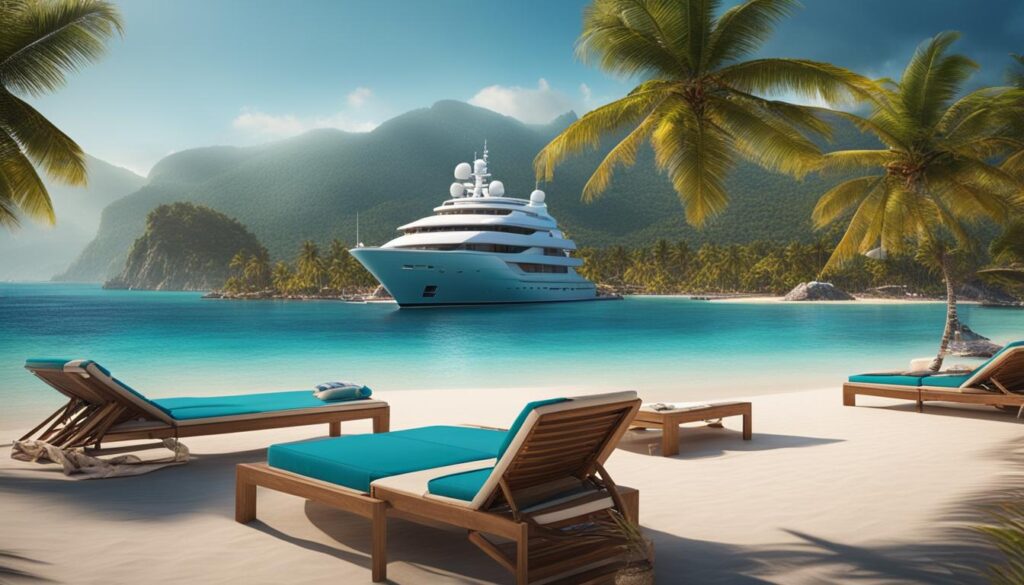We may earn money or products from the companies mentioned in this post.
There’s something special about being a part of a global celebration. From the colorful lights of Diwali in India to the vibrant costumes of Carnival in Brazil, Festivals offer a unique insight into the customs and traditions of various communities worldwide.
In this article, we’ll take you on a journey to explore the joy and cultural significance of global festivals and celebrations. We’ll highlight the diverse range of festivities and traditional customs celebrated across different cultures and showcase the beauty of cross-cultural celebrations. We’ll also delve into the universal joy experienced during worldwide celebrations and the cultural significance of these festivities. Finally, we’ll recommend must-visit international festivals and highlight festivals that are uniting global communities.
Key Takeaways
- Global Festivals and Celebrations are an opportunity to experience the customs and traditions of various communities worldwide.
- Worldwide Celebrations bring people together and foster cultural exchange and understanding.
- Festivals play a vital role in preserving traditions, passing down cultural knowledge, and strengthening community bonds.
- Must-Visit International Festivals offer unique experiences and cultural significance.
- Festivals Uniting Global Communities showcase the power of celebration to bring people from different cultures together.
Diverse Festivities and Traditional Customs
Cultural events and celebrations around the world offer a unique glimpse into the rich diversity of traditional customs and festivities. These diverse celebrations are an integral part of global holiday traditions, reflecting the unique values and beliefs of each community.
Customs and Festivities Across Cultures
From the colorful and vibrant celebrations of Indian festivals like Diwali and Holi to the solemn and reflective traditions of Mexican Day of the Dead and Japanese Obon, cultural events and festivities are steeped in tradition and history. These events, often passed down over generations, provide an outlet for individuals to express their cultural identity and preserve the heritage of their ancestors.
Many traditional customs and diverse festivities revolve around religious events, such as Ramadan and Eid al-Fitr for Muslims, Hanukkah for Jewish communities, or Christmas and Easter for Christians. However, secular events like the Brazilian Carnival or Chinese New Year also offer a chance for communities to come together and celebrate their shared cultural identity.
The Importance of Traditional Customs
Traditional customs and diverse festivities play a key role in preserving cultural heritage and transmitting cultural knowledge from one generation to the next. These celebrations are a way for communities to honor their history, identity, and beliefs. By celebrating these traditions, communities ensure that they are not lost or forgotten over time.
Traditional customs and diverse festivities also help to strengthen community bonds, creating a sense of belonging and shared identity. Through these celebrations, individuals can connect with others who share their cultural background, creating a sense of unity and mutual respect.
Experiencing Global Holiday Traditions
One of the joys of cultural events and diverse festivities is the opportunity to experience the unique traditions and customs of different cultures. From the colorful costumes and lively music of Brazilian Carnival to the mouth-watering street food of Thai Songkran, attending traditional celebrations offers a chance to experience the sights, sounds, and flavors of different cultures.
Traveling to different parts of the world and experiencing these diverse festivities firsthand can be a life-changing experience, broadening one’s understanding of the world and fostering a deeper appreciation for cultural differences.
“The beauty of the world lies in the diversity of its people.” – Unknown
Cross-Cultural Celebrations
One of the most beautiful aspects of global festivals and celebrations is the way they bring people from different cultures and backgrounds together to honor shared traditions or create new ones. Cross-cultural celebrations are an opportunity for us to appreciate and learn from one another, fostering a deeper understanding and sense of community among diverse groups.
International festivals are excellent examples of cross-cultural celebrations. These events often feature music, food, dance, and crafts from around the world, celebrating the rich diversity of global cultures. By attending these festivals, we can gain a broader understanding of the multitude of traditions and customs that exist in other countries and regions.
“Cross-cultural celebrations help to bridge the gap between different communities and foster a sense of unity and understanding.”
One example of a cross-cultural festival that has gained international recognition is the Diwali festival, also known as the Festival of Lights. This Hindu festival is celebrated in many countries, including India, Nepal, and Sri Lanka. During Diwali, people light candles and lanterns, decorate their homes with vibrant colors, and enjoy traditional foods and sweets. The festival symbolizes the victory of good over evil and is a time for families and friends to come together in celebration.
Cross-cultural celebrations like Diwali not only provide an opportunity for people to come together in joy but also promote cultural exchange, helping to break down stereotypes and prejudices that can exist between different groups.
The Benefits of Cross-Cultural Celebrations
- Promote unity and understanding among diverse communities
- Foster cultural exchange and appreciation
- Break down stereotypes and prejudices
- Provide an opportunity for people to come together in celebration
Whether attending a music festival featuring artists from around the world, sampling traditional foods at an international food fair, or participating in a cross-cultural ceremony, cross-cultural celebrations provide an opportunity to experience the beauty of other cultures and build connections with people from diverse backgrounds.
The Joy of Worldwide Celebrations
Global party experiences are some of the most thrilling and unforgettable events worldwide, drawing crowds of millions eager to join in the festivities. Throughout history, people have come together to celebrate significant occasions and to honor their cultural heritage.
The vibrant music and lively atmosphere of worldwide celebrations make them a unique and exciting experience. From colorful parades to magnificent fireworks shows, these events are a feast for the senses. Participants can enjoy a variety of delicious food and drinks, shop for local crafts, and engage in fun activities with family and friends.
But worldwide celebrations are more than just a fun party. They also bring people together, fostering a sense of unity and shared experience. Whether it’s a religious event, a cultural festival, or a sporting competition, these celebrations provide opportunities for people to connect and learn from each other’s traditions and customs.
“Global party experiences are some of the most thrilling and unforgettable events worldwide, drawing crowds of millions eager to join in the festivities.”
Worldwide celebrations come in all shapes and sizes, and it’s hard to choose just one as the most exciting. The Carnival of Rio de Janeiro, the Mardi Gras in New Orleans, Diwali in India, Oktoberfest in Germany, and the Chinese New Year festivities are just a few examples of the diverse and captivating celebrations around the world.
| Event | Location | Date |
|---|---|---|
| Carnival of Rio de Janeiro | Rio de Janeiro, Brazil | February/March |
| Mardi Gras | New Orleans, USA | February/March |
| Diwali | India and other countries with Hindu populations | October/November |
| Oktoberfest | Munich, Germany, and other locations | September/October |
| Chinese New Year | China and other countries with Chinese populations | January/February |
Attending a worldwide celebration is an excellent way to experience different cultures and learn about their customs and traditions. These events provide a unique opportunity to explore the world and connect with people from different backgrounds.
In conclusion, worldwide celebrations offer a dazzling display of culture, tradition, and shared experience. From the lively atmosphere and vibrant music to the delicious food and exciting activities, these events provide a feast for the senses and a unique opportunity to explore the world and connect with people from diverse backgrounds.
Cultural Significance of Festivals
Global holiday traditions and cultural events play a crucial role in preserving the unique cultural heritage of communities around the world. Festivals are an integral part of these traditions, often serving as a means of passing down cultural knowledge and strengthening community bonds.
For instance, the Día de los Muertos or Day of the Dead in Mexico is a significant cultural event that celebrates the memories of loved ones who have passed away. This festival is a time for families to come together to create altars and offerings, share stories, and honor the lives of their ancestors. Similarly, the Holi festival in India honors the arrival of spring and the triumph of good over evil, celebrated by throwing colored powder at each other.
Through these festivals, communities can showcase their unique customs, beliefs, and values, allowing visitors to gain a deeper understanding and appreciation for their way of life. The preservation of these cultural traditions is vital for future generations to understand their cultural roots and keep the customs alive.
Must-Visit International Festivals
Global Festivals and Celebrations offer unique experiences that showcase the diversity of cultures worldwide. Here are some international festivals that should be on everyone’s bucket list:
| Festival Name | Location | Date |
|---|---|---|
| Carnival | Rio de Janeiro, Brazil | February |
| Oktoberfest | Munich, Germany | September – October |
| Diwali | New Delhi, India | October – November |
| Mardi Gras | New Orleans, Louisiana, USA | February |
| Holi | Mathura, India | March |
Each of these festivals has its unique cultural significance and traditions that attract visitors worldwide. Carnival in Rio de Janeiro is famous for its elaborate parades, music, and vibrant costumes. Oktoberfest in Munich is the largest beer festival in the world, where attendees can enjoy traditional Bavarian food, music and of course, beer. Diwali, the festival of lights, is celebrated across India and marks the triumph of good over evil. Mardi Gras in New Orleans is known for its festive and flamboyant parades, while Holi in Mathura is the color festival, where participants paint each other with vibrant colors.
Whether you want to explore new cultures, taste different cuisines, or simply enjoy the joy and spirit of worldwide celebrations, these festivals offer something for everyone. Make sure to experience at least one of these international festivals to gain a deeper appreciation for the diverse world we live in.
Festivals Uniting Global Communities
Global festivals and celebrations have a unique power to bring people from all walks of life together. From music and dance to food and traditions, these events offer a chance to experience diverse cultures and celebrate our shared humanity. Here are some of the most renowned and beloved worldwide celebrations that unite global communities:
| Festival | Location | Description |
|---|---|---|
| Carnival of Rio de Janeiro | Brazil | This annual festival is known for its extravagant parades, elaborate costumes, and samba music. It attracts over two million visitors from around the world and is a celebration of Brazil’s rich cultural heritage. |
| Chinese New Year | China | This is one of the most important festivals in Chinese culture and is celebrated worldwide. The festivities include dragon and lion dances, fireworks, and family gatherings. It’s a time to welcome the new year and honor ancestors and deities. |
| Diwali | India and other countries with large Hindu populations | Also known as the “festival of lights,” this Hindu celebration symbolizes the triumph of good over evil. It’s marked by lighting candles and lamps, exchanging gifts, and enjoying traditional sweets and savories. |
| Oktoberfest | Germany and other countries with German communities | This world-famous beer festival attracts millions of visitors every year. It’s a celebration of Bavarian culture and features traditional music, food, and of course, beer. It’s a time to come together and enjoy the company of friends and strangers alike. |
These festivals are just a few examples of the many worldwide celebrations that unite global communities. By participating in them, we can learn about different cultures, make new friends, and celebrate our shared humanity. They remind us that no matter where we come from, we all share the same hopes, dreams, and joys.
Conclusion
In conclusion, exploring global festivals and celebrations is a journey that takes us on a cultural adventure. As we learned, these celebrations are not just about having fun but also about preserving traditions, educating new generations, and fostering unity among diverse communities.
Joining the Celebration
By participating in these global festivities, we have the opportunity to experience the joy and novelty of unique festivities, taste exotic foods, witness cultural performances, and meet people from around the world. Whether it’s taking part in the colorful parades of Rio de Janeiro’s Carnival or the solemn processions of Spain’s Semana Santa, we can immerse ourselves in an unparalleled cultural experience.
Enhancing Cultural Awareness
Experiencing a different culture through its festivities can help us appreciate and understand the differences and similarities that make us unique. By sharing in the festive spirit of our fellow humans, we can broaden our minds and become more tolerant and empathetic towards others.
Expanding our Horizons
In discovering worldwide celebrations and international festivals, we can expand our horizons and gain a broader perspective on the world. These occasions offer us the chance to explore the customs and traditions that are the foundation of each culture and appreciate the beauty that lies within.
So why not pack your bags, put on your dancing shoes, and join the global party experience? Let’s celebrate our cultural diversity and unite in joy and harmony!
FAQ
What are global festivals and celebrations?
Global festivals and celebrations are cultural events held worldwide that commemorate important milestones, traditions, or religious occasions. These festivities bring communities together to celebrate, express their cultural heritage, and foster a sense of unity.
What is the significance of traditional customs in global festivals?
Traditional customs play a vital role in global festivals as they represent the unique cultural identities of different communities. These customs often have historical or symbolic meanings and are passed down from one generation to another, helping to preserve cultural heritage and foster a sense of pride and belonging.
How do cross-cultural celebrations promote understanding and unity?
Cross-cultural celebrations provide an opportunity for diverse communities to come together and appreciate each other’s traditions and customs. By participating in these celebrations, individuals can learn about different cultures, build bridges of understanding, and promote unity among people from various backgrounds.
What makes worldwide celebrations joyful?
Worldwide celebrations are known for their lively atmosphere, vibrant music, delicious food, and overall festive spirit. The joy experienced during these events stems from the collective excitement, the sense of togetherness, and the celebration of shared values and traditions.
What is the cultural significance of festivals?
Festivals hold great cultural significance as they help preserve traditions, pass down cultural knowledge and values, and strengthen community bonds. They provide a platform for communities to express their unique identities, celebrate their heritage, and maintain a sense of belonging and continuity.
Which international festivals are worth visiting?
There are numerous international festivals that offer unique experiences and insights into various cultures. Some notable ones include Carnival in Rio de Janeiro, Diwali in India, Oktoberfest in Germany, Chinese New Year in China, and the Day of the Dead in Mexico.
How do festivals unite global communities?
Festivals have the power to bring people from different countries together, fostering cultural exchange and promoting understanding. Through shared experiences and celebrations, festivals create a sense of global community, breaking down barriers and nurturing a spirit of inclusivity and cooperation.
Affiliate Disclosure: This post may contain affiliate links. If you purchase through our link, we may receive a small commission, but at no additional cost to you. For more information, please see our Disclosure statement.



